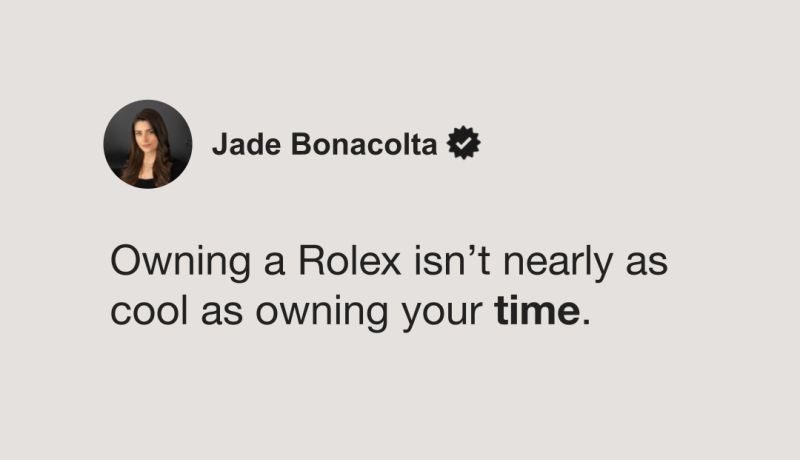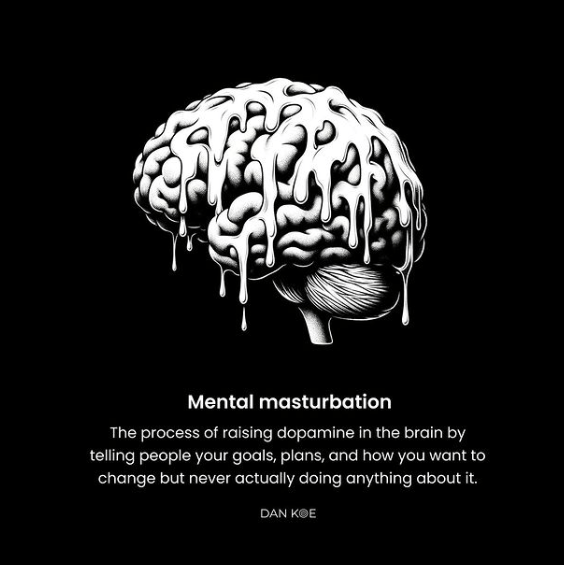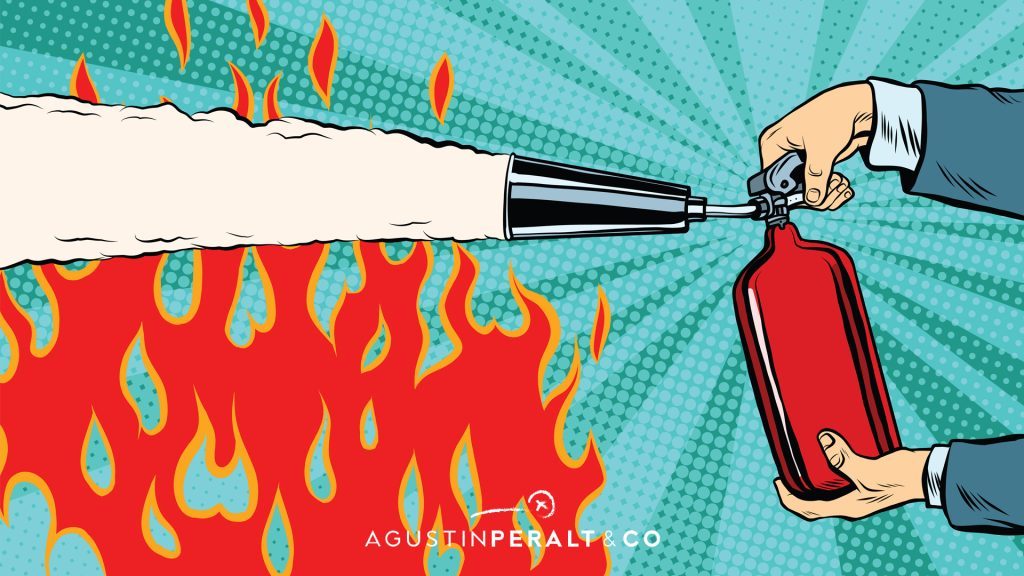Having the Dutch invite a Spaniard to give a conference in Amsterdam titled “Work Smarter, Not Harder” and to present Método FASE, a Spanish productivity and time management methodology, might seem like a joke, and above all, not very credible. That’s why we added to the title: “Work Smarter, Not Harder and LIVE BETTER.” The idea of wanting to know the secrets of Spaniards to enjoy life is much more attractive. Jokes aside, last week we were in Amsterdam invited to this conference by QBE Amsterdam, thanks to Sebastián Ijaz and Beatriz Valenti, all of them clients of the method. First surprise: full house! And, knowing the place well, since some of us have worked in the country before, we were surprised that they valued the messages we usually convey so much. Second surprise: Very positive reception, much greater than expected. Full House: The Impact of the Productivity Conference in Amsterdam This made us think about the reasons behind such a good reception. Later, when talking with Joris, our coach who leads Northern Europe, we came to the following conclusion: technology, which came to help, has progressively and silently deteriorated high-productivity cultures like the Dutch, where they are now starting to have time management problems more than in the past. The misuse of technology for communication in all its forms – email, mobile, Teams – as well as the power of the internet to distract us, among other things, has led to multitasking taking over everything, making the rest difficult. It makes us not have enough time, unable to work with full attention on certain topics, and drains our energy during the day. And this leads us to the hamster wheel of silent and progressive deterioration, where we end up lacking time to think about our priorities or to plan well. What an irony. Our conclusion is clear: technology, or rather, the misuse of technology (as Jon Acuff says, “there is a whole industry that does not want me to grow, that does not want me to change, that does not want me to stay connected to what really matters”), has made productive people and cultures less so, and those that were not productive are in free fall. And that’s why we see so many cases of burn-out. It’s not the workload, nor the issues in the sectors, nor how complicated your company is, nor your boss, nor your team, nor your partner; it’s us and our inability to detect that, with this way of working, everything is much more complicated than it really is. We must change. Everyone can find balance, but effort is required to achieve it. Are you ready?
Category Archives: Uncategorized
Pladis UK success: Helping teams work smarter, not harder, with the FASE Method® PLADIS, one of the world’s leading snacking companies with over 300 years of family baking and confectionery experience, and FASE METHOD®, one of the leading methodologies in Europe, help contributors and senior managers achieve a balanced life and better results. No one doubts that when our teams are committed and engaged, everything works much better, creating a virtuous cycle of greater goal achievement, better results, and more resources to take care of them. If there is something that serves as a solid foundation to prevent people from losing motivation, it is the sense of feeling overwhelmed and the increasing level of stress. Pladis UK understood more than 2 years ago that when its people are at their best, they will have motivated teams and the business will be a great place to work for everyone. That’s why they entrusted us to launch an innovative program to help their teams learn how to work smarter, not harder through our FASE METHOD®. Our mission More than a training program, this is a transformative individual program aiming to shift the culture towards more effectiveness, better well-being, and benefits for both the company and the employees. This initiative “FASE METHOD® implementation at PLADIS UK: Transforming how we work” that has recently been awarded the BEST INNOVATION INTERVENTION at the Global Pladis HR Awards. Pladis, like many of our other clients, has been a pioneer in understanding the necessity of helping people and teams learn how to WORK SMARTER, NOT HARDER, through a methodology like the FASE Method®. We are deeply grateful for the trust and support of Pladis. Their commitment to employee well-being is an inspiring example for all companies looking to achieve exceptional results through a human and balanced approach. Thank you to everyone who has been part of this journey. Let’s continue working together to create work environments where everyone can thrive!
Many times, clients ask us how we managed to develop a methodology that is so simple yet so powerful and tailored to the current needs of managers. And we always have to correct them. We created the initial sketch back in 2015, and since then, we have progressively co-created the FASE Method with hundreds of our clients. And we continue to do so. Day by day, week by week, month by month, because the world evolves, and so do the roles of leaders and teams. And it happened again recently with a client. At a roundtable where we were presenting the implementation path of our method, new ideas emerged that further enriched it. Xavier Marcet talks about avoiding the addiction to corporate inertia, that is, their resistance to change. This is our way to avoid it: by listening to and challenging our clients to think with us about how we can help them improve their way of working, to work smarter, not harder. All this with one goal, to aspire to the work lives we desire while maintaining a balance and harmony between personal and professional life. Let’s keep co-creating for many more years
“Owning a Rolex isn’t nearly as cool as owning your time.” Jade Bonacolta from The Quite Rich. Jade Bonacolta has created a lifestyle concept called Quite Rich, which defines wealth in terms of time, life experiences, relationships, and self-confidence, rather than monetary wealth. On the other hand, Paul Altieri, writes a post on Bob’s Watches website, claiming that the identity of those who own a Rolex reflects a “Supreme Focus”, meaning, these individuals are characterized by having a very clear and strong focus on their ambitious life aspirations, achieving a level of determination that suggests that, if desired, anything is possible. All this has made me think carefully about it, possibly due to the concept of FOCUS which is one of the pillars of our FASE Method. I have considered what would be a better gift for our children: a Rolex or teaching them to master their time management. And, extending this reflection to our teams, what is better? Offering them a bonus at the end of the year so they can buy a Rolex or investing that bonus in training to improve their time management and personal effectiveness, thus aligning with what Jade calls “Quite Rich”? I have come to the conclusion that, while we decide between the Rolex or the training on individual effectiveness, we can start with something that undoubtedly has no price for both them and us: As leaders, we must be examples to follow in our organization and time management so that they advance towards achieving results and become deserving of the bonus. As parents, if we are examples of good personal organization and time management, we will help our children, in their preparation for the future, acquiring the greatest number of differential competencies possible. And it is evident that personal organization is one of them, being the basis of many other differential competencies such as leadership and resilience. Investing in a Rolex or investing in winning time. That is the question to be resolved.
Mental Masturbation I was surprised by this term when I read it with that connotation about intentions and realities. Many people do not dedicate enough time to setting goals and creating plans. They find it hard to stop and think, preferring to continue on the hamster wheel of M&Ms we recently talked about. Letting themselves be carried away by the day with an apparent occupation created by others. But many set goals and create coherent plans, but then are unable to carry them out. They then share and discuss their ideas. But that’s where it ends: in the dopamine high that thinking about it and sharing it provides, even without future execution. They call that Mental Masturbation. The term is brutal. What is often missing? The ability to align our schedule and calendar with those goals, plans, and intentions. That is what makes the difference. Therefore, I don’t just want you to share your goals and plans, but also to show me your schedule aligned with them and explain how you are fulfilling them week by week. Your schedule never lies.
How to Start and Systematize AI Use to Enhance Our Effectiveness? On August 29th, a headline caught my attention: ‘Professionals are rapidly incorporating AI, but feel the need for more guidance and help on how to use it’ (Charlotte Trueman, Asana Research). This struck me like a ‘wake-up call’, as we, the supposed experts in personal productivity, were overlooking a crucial element in the field of personal effectiveness, both for our individual use and for adapting the FASE Method to what’s useful in terms of personal efficiency and efficacy. The second ‘reality check’ came from the youngest member of our team. Their ability to handle pending tasks with agility and efficiency thanks to AI was an impressive practical demonstration. How could she have prepared such a high-quality presentation in just 20 minutes? A new perspective Now, whenever I face a task, I wonder how AI could assist me, whether by speeding up the process or improving the outcome’s quality. In line with the FASE Method philosophy, AI allows us not only to tackle routine tasks more efficiently but also complex and high-value tasks; that is, it enables us to save time but also to achieve better quality and results. We’ve progressed from those early weeks to this January, successfully launching our first three workshops on artificial intelligence for personal productivity within the FASE Method. The great news is the infinite potential of this topic and how much it can contribute. We continue and will continue to apply, learn, and seek ways to help others integrate ‘super AI’ in enhancing their productivity. But above all, we assist in the effectiveness of individuals in accelerating their process with AI to improve their personal effectiveness. That is, we guide them step by step in the process of being effective in its introduction and use, if you will pardon the redundancy. How are you integrating AI into your routine to improve your productivity and effectiveness?
What is a widespread mistake in organizing yourself effectively, common among many who seemingly work hard and are highly focused on their jobs? On January 5th, I had dinner with some close friends. I engaged in a fascinating conversation with one of them, a lawyer named Alfonso. Highly intelligent and an excellent character, Alfonso genuinely cares about others and knows how to ask the right questions: Alfonso: “Agus, have you started sessions with clients this week?” Me: “Very few. Most clients are still on vacation, even those from outside Spain. They don’t miss out.” Alfonso: “So, what are you doing this week as you’re already working?” Me: “Doing the most important thing I do every month, though with a bit more time at the start of the year. Spending time planning the next quarter. Identifying priorities to ensure my calendar, meetings, habits, routines, and systems for the coming months align with them in the right proportions.” Alfonso: “Tell me more, I think I heard you discuss this on a podcast recently.” Me: “We call it STOP & THINK, dedicating time to plan intentionally based on our priorities.” Alfonso: “That’s exactly where I fail. Why do I find it hard to stop, think, and plan, yet I can spend hours with clients or preparing for a trial? I can’t seem to dedicate a few hours to thinking and planning.” Me: “Don’t worry, you’re not alone. It’s a common human nature absurdity. However, as a successful lawyer who seems happy, you don’t have a severe problem. But, I will tell you two things: Without sufficient planning and reflection, you probably work more hours than necessary. And, you haven’t yet discovered your best version and what you’re capable of achieving, probably with a better lifestyle.” 💭 This conversation left Alfonso thoughtful, questioning his current approach to work. This exchange with Alfonso highlights a common dilemma: we can work long hours, day after day, yet struggle to dedicate time to planning. And planning is the foundation of everything else. Without setting aside time to think and plan from a distance, we are likely not working on what we really should be, which is the greatest absurdity. 📝 Reflecting to plan not only improves our effectiveness and ensures our best professional version but also allows us to maintain a balanced life. It’s the best possible investment. ✅ How much time have you devoted to planning your first 2-3 months of the year in relation to your priorities?
“The Best Legacy for Our Leaders of Tomorrow: Beyond Material Wealth” In our dynamic conferences, we often delve into unconventional topics, and today’s focus on legacy is no exception. We’re redefining legacy, shifting the focus from material inheritance to something far more impactful: habits that shape future leaders. The Power of Reading and Reflective Writing Among these, the habit of reading stands paramount. Its benefits are well-documented: enhanced attention, improved communication skills, and stronger neural connections – all crucial for effective leadership. Equally important, though less obvious, is the practice of reflective writing. Whether with traditional pen and paper or a digital stylus, this habit fosters: Enhanced synthesis and conceptualization of ideas. Improved processing of complex information. Better retention and comprehension. Balancing Speed with Thoughtful Reflection In our fast-paced, tech-driven world, handwritten reflection might seem outdated. Yet, it offers a unique advantage: it curbs the lure of multitasking, a challenge identified in recent studies as detrimental to productivity and focus in both educational and professional settings. Applying Reflective Practices in Professional Life How can these practices be integrated into our daily professional routines? They’re invaluable for: Learning new concepts and strategies. Structuring impactful presentations and pitches. Brainstorming for innovative solutions. Making well-considered decisions. Reviewing and analyzing key documents. In our FASE Method, we emphasize starting with handwritten ideas, and transitioning them into digital formats for further development. Conclusion: Embracing Traditional Skills in a Digital Age In an era where digital tools dominate, the traditional art of reading and writing holds immense power. The most significant legacy we can leave for the next generation of leaders is the ability to disconnect, reflect, and innovate, free from digital interruptions.
“Whoever wants to reconcile, must earn it” Reconciliation involves finding a balance between personal and professional life achieving goals in both areas. It’s about advancing in professional challenges without neglecting what you value most: family, partner, hobbies. We always like to remember that professional purpose should be a means to achieve personal purpose, something that, in my case, took me too long to understand. The Need for Organizational Training But, have we ever been taught to reconcile? Are there specific practices or training in organizations to facilitate this balance, beyond mindfulness training for stressful moments or motivational talks? Organizations and Employee Retention Fortunately, the landscape is changing. Reconciliation has become a priority for both professionals and employers. Organizations are seeking to retain their talent, knowing that a balance between professional and personal life is key to commitment and retention. To achieve this, they are starting to allocate resources more intentionally to help people organize themselves better. Initiatives for simplification or understanding what it means to work smarter, not harder, are some examples in this direction. “Organizations want to retain their talent and know that one of the key elements to achieve this is for workers to maintain a balanced life between the professional and personal.” Strategies for Effective Time Management However, as employees, we must also take individual responsibility to improve our organizational skills. Reconciliation requires an individual effort to manage our time and resources efficiently, which means a process of individual change with all that it entails. “Work smarter, not harder: fortunately, it’s not about working many hours but working with productivity and intelligence, not more.” Conclusion: A Collective Effort for Better Balance In summary, both professionals and organizations must strive to achieve reconciliation. By focusing on effective time management and prioritizing work-life balance, we can foster a more productive and satisfying professional and personal life.
The leader of a team bears the ultimate responsibility when one of their members experiences burnout. Acknowledging this can be tough, but it’s a reality. That’s why being an effective leader is crucial to prevent others from going through the same ordeal—a state that is difficult to recover from. For this reason, among many others, people invest time in learning how to be better leaders. The positive outcome is that we avoid actions that would negatively impact our perception as good leaders (e.g., giving negative feedback to a team member in front of others). However, this doesn’t necessarily mean doing everything we know we should do to be effective leaders (e.g., not dedicating enough quality time to the team consistently). This becomes a double-edged sword, as we either overcompensate or fail to be assertive when things go awry. Why does this happen? The answer is simple: we lack one of the fundamental bases for good leadership—mastering our schedules and time sufficiently to engage in behaviors, practices, routines, or habits that lead to balanced leadership. Balance involves mobilizing our team to achieve desired results while also considering how to care for them by addressing their various motivations and needs. A leader who is not well-organized will not set an example for their team and will lack the necessary time to devote to them, either individually or as a group. We need time to think about each of them, observe their well-being, and then dedicate quality time to them. Otherwise, much of what is illustrated in this fantastic explanatory chart on how to prevent burnout in your team remains theoretical. Leaders have a far greater influence on preventing team burnout than they might imagine. Everything proposed in this blueprint (by Tamara Beckford MD, MS) requires two things. First, a genuine desire to help our team. Second, being organized enough to have sufficient time to carry out all these actions. Leadership involves a prior exercise in self-leadership, which includes assessing our level of effectiveness and organization, as well as our willingness to improve in these areas. Self-awareness is the key foundation for any change process.
- 1
- 2












